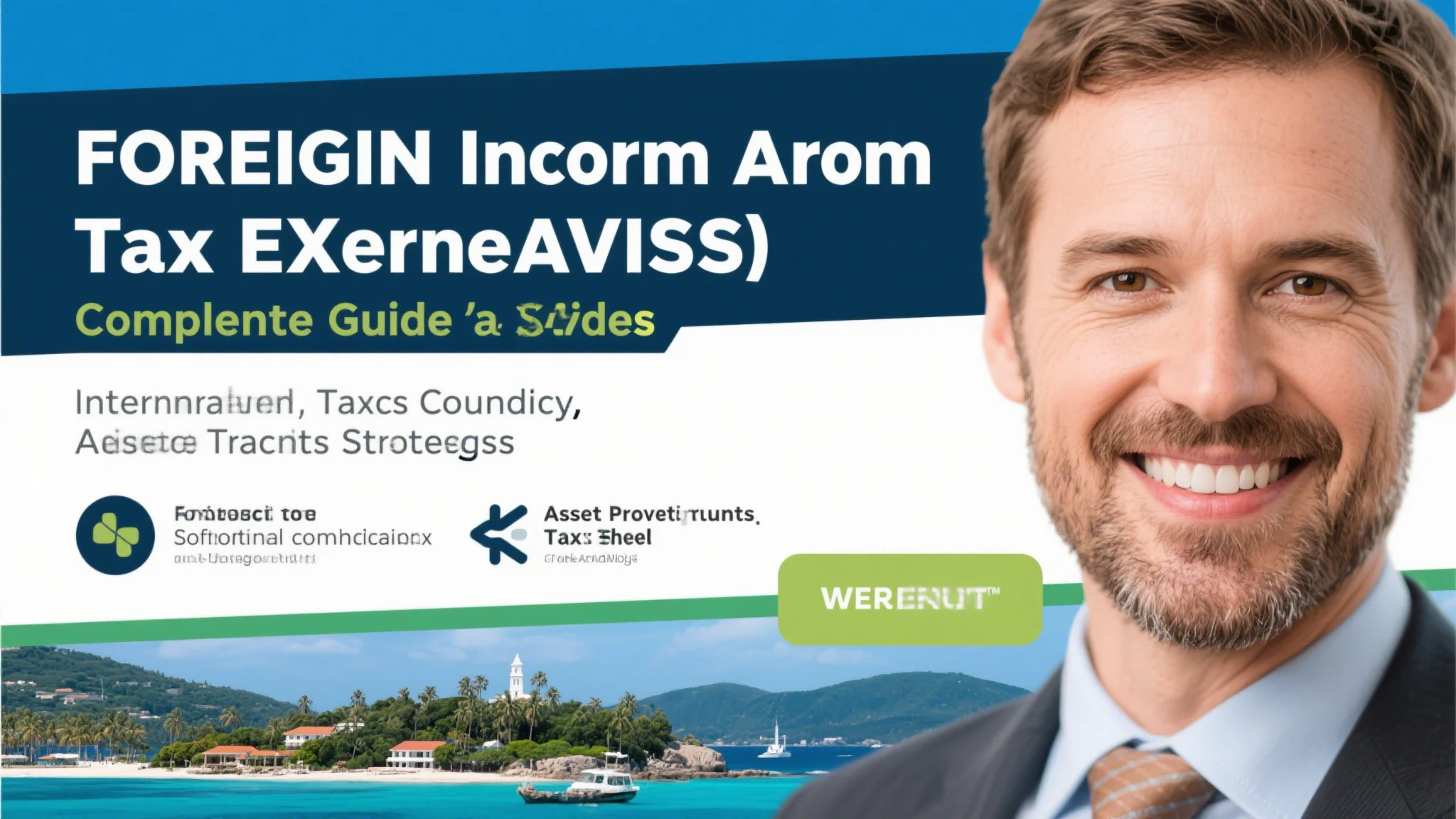
Offshore Tax Havens Explained for Smart Investors
Understanding Offshore Financial Centers
When offshore tax havens explained properly, they reveal legitimate wealth preservation tools rather than the shady hideouts often portrayed in media. Jurisdictions like Switzerland, Cayman Islands, and Singapore offer political stability, strong privacy laws, and favorable tax regimes. These centers specialize in international banking, asset protection, and cross-border investment vehicles. Sophisticated investors use them for diversification beyond domestic markets and to access specialized financial services unavailable at home.
The key distinction lies between tax avoidance (legal) and evasion (illegal). Properly structured offshore arrangements fully comply with all reporting requirements like FBAR and FATCA. The Foreign Account Tax Compliance Act requires foreign financial institutions to report U.S. account holders to the IRS, making undisclosed accounts increasingly difficult to maintain. Transparency has improved significantly since the 2008 financial crisis, with most reputable havens participating in automatic information exchange agreements.
Asset Protection Trust Structures
Asset protection trusts established in jurisdictions like Cook Islands or Nevis provide formidable barriers against creditors and lawsuits. These irrevocable trusts separate legal ownership from beneficial interest, making assets extremely difficult to seize through foreign court orders. The statute of limitations for challenging such trusts is often as short as one year, compared to four to six years domestically.
Properly structured offshore trusts require independent trustees and adherence to strict formalities. They typically include spendthrift clauses preventing beneficiaries from alienating their interests. Some jurisdictions don’t recognize foreign judgments at all, forcing plaintiffs to re-litigate cases locally under more stringent standards. These trusts work best when established before liabilities arise, as fraudulent transfer laws may void last-minute asset transfers.

Navigating Foreign Income Rules
Understanding foreign income tax exemptions is crucial for global investors. The U.S. taxes worldwide income but offers several relief mechanisms. The Foreign Earned Income Exclusion (FEIE) allows excluding up to $120,000 (2023) of foreign earnings if meeting either the Physical Presence Test or Bona Fide Residence Test. The Foreign Tax Credit provides dollar-for-dollar offsets for taxes paid to other countries.
Tax treaties between countries prevent double taxation and may reduce withholding rates on dividends, interest, and royalties. The Passive Foreign Investment Company (PFIC) rules impose harsh penalties on unreported foreign mutual funds and similar investments. Controlled Foreign Corporation (CFC) regulations attribute certain income from foreign companies back to U.S. shareholders. Proper planning with international tax professionals can navigate these complex rules while maximizing available benefits.
Legal Tax Shelter Strategies
Legitimate tax shelter strategies focus on deferral and rate arbitrage rather than outright avoidance. Captive insurance companies allow businesses to deduct premiums while building reserves in favorable jurisdictions. Puerto Rico’s Act 60 offers 4% corporate tax rates and 0% capital gains for bona fide residents. The U.S. Virgin Islands provide similar incentives through its Economic Development Program.
International pension plans can defer taxation until distributions begin, often at lower rates. Offshore variable universal life insurance policies offer tax-deferred growth and tax-free withdrawals up to basis. Private placement life insurance (PPLI) wraps investment portfolios in insurance policies for estate tax benefits. These sophisticated strategies require substantial minimums ($1M+) and careful compliance with all reporting requirements to maintain their tax advantages.
Compliance Requirements
International tax compliance involves multiple reporting obligations beyond standard filings. The Report of Foreign Bank and Financial Accounts (FBAR) requires disclosing foreign accounts exceeding $10,000 aggregate value. Form 8938 extends this requirement to broader financial assets under FATCA rules. Form 8621 reports PFIC holdings, while Forms 5471 and 8865 disclose foreign corporate interests.
Failure to comply carries severe penalties, including potential criminal charges for willful violations. The IRS Offshore Voluntary Disclosure Program (OVDP) allowed past non-filers to come into compliance, though current options are more limited. Streamlined procedures exist for non-willful violations, typically requiring three years of amended returns and six years of FBARs. Maintaining proper documentation and working with experienced international tax counsel is essential for compliance.
Selecting the Right Jurisdiction
Choosing an offshore center depends on specific needs: banking privacy, asset protection, tax efficiency, or investment access. Switzerland remains premier for private banking, while Singapore dominates Asian wealth management. Cayman Islands and British Virgin Islands excel for hedge funds and captive insurance. Luxembourg and Ireland serve as European fund domiciles with tax-efficient structures.
Emerging jurisdictions like Mauritius and Dubai are gaining prominence for specific regional advantages. Political stability, legal system sophistication, and infrastructure quality should outweigh marginal tax rate differences. Reputable havens maintain strong anti-money laundering (AML) and know-your-customer (KYC) standards. Engaging local legal and financial professionals ensures proper structure setup and ongoing compliance with both local and home country laws.
Common Pitfalls to Avoid
Offshore strategies fail when improperly implemented or maintained. Using nominee directors or shareholders without proper documentation can pierce corporate veils. Commingling personal and business funds undermines liability protection. Failing to file required disclosures negates any benefits and risks severe penalties. Overestimating privacy protections leads to unpleasant surprises when information gets exchanged automatically.
Unrealistic promises from offshore promoters often signal scams. Any arrangement suggesting complete tax elimination or secrecy should raise red flags. Proper offshore planning requires transparency with home country tax authorities while legally minimizing liabilities. Maintaining economic substance – actual operations and decision-making in the jurisdiction – prevents structures from being disregarded as shams.
Integrating Offshore and Domestic Planning
Effective wealth preservation combines offshore and domestic strategies. Domestic asset protection trusts in states like Nevada or South Dakota work alongside foreign structures. U.S. retirement accounts coordinate with international pensions. Domestic LLCs may hold foreign entities for operational convenience. The overall structure should reflect the family’s international ties, business operations, and legacy goals.
Regular reviews ensure continued compliance as laws evolve. The Common Reporting Standard (CRS) has expanded automatic information exchange globally. Economic substance requirements have tightened in traditional havens. Proactive adjustments maintain benefits while avoiding unnecessary risks. With proper planning and professional guidance, offshore strategies remain powerful tools for sophisticated global families.


